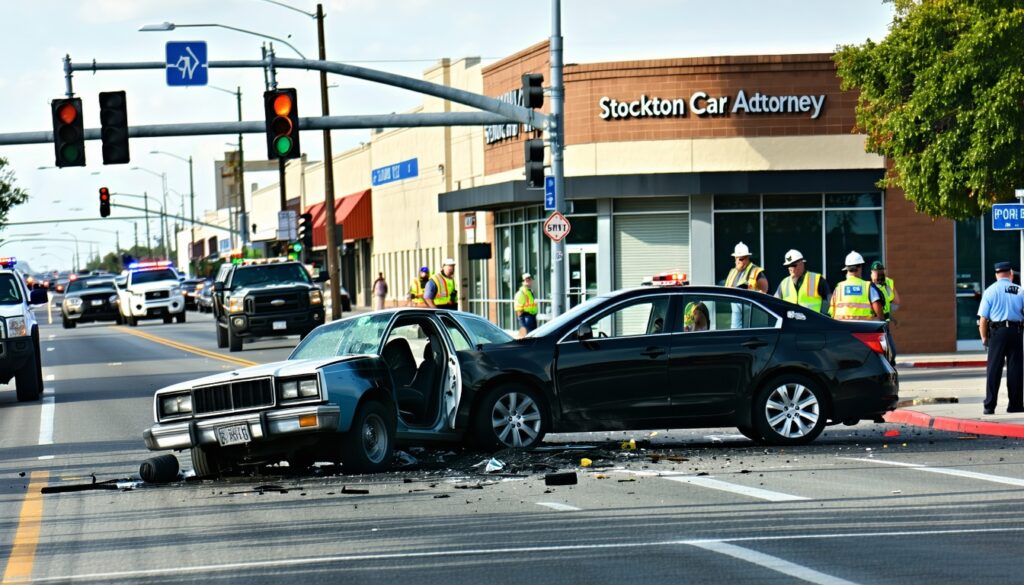
Living in California, ever wonder what happens if someone hits ‘record’ on you without your say-so? The rules around recording folks here are spelled out in no uncertain terms. Let’s break down the California laws about recording without a “heads up” and what you can do if somebody pulls a fast one and records you without asking.
- Is It Illegal to Record Me Without Consent in California?
- Is It Illegal to Record Someone Without Consent in California
- When Can You Sue Someone for Recording You Without Permission
- Exceptions to the Consent Rule in California
- Common Situations Where Illegal Recording Happens
- What Are Your Legal Options if Someone Illegally Records You
- How Much Can You Sue for If You’ve Been Illegally Recorded
- What to Do If You Think You’re Being Recorded Without Consent
- What Not to Do When You Suspect Illegal Recording
- Can Employers or Neighbors Record You Without Permission
- How to Make Sure You're Not Recorded Without Knowing
- When to Contact an Attorney About Illegal Recording
Is It Illegal to Record Me Without Consent in California?
Here in the Golden State, it’s all about communication: everyone in the room has to give the nod before any recording goes down. This Two-Party Consent Law gives us the scoop: any voice or conversation recording—whether it’s sitting on the couch or catching up in a café—must have everyone on board. Now, whether you’re in the spotlight or on the down-low matters big time when it comes to recording legally.
When Can Actions Be Taken Against Unauthorized Recordings?
Caught off-guard with a recorded remark that you didn’t green-light? You’ve got a few paths to tread. Sussing out if you’ve got a strong case against some sneaky recorder involves understanding if there was a legit invasion of privacy and if it messed with your peace of mind. Suing the pants off the violator is just one option, and there are specific hoops to jump through to do it right.
Exceptions to the Consent Rule in California
Sure enough, there are scenarios where you don’t need every Tom, Dick, and Harry’s “okay” to hit record. Hanging out in public? Recording can be fair game. Or if you’re doing it for your protection, or if the cops are involved, there are some leeways. Knowing these exceptions can keep you out of hot water.
Exploring Common Situations of Illegal Recordings
From sneaky cams in the office to phone calls when you’ve already hit the hay, unauthorized recordings pop up in many places. Knowing these common sticks helps sniff out when somebody’s crossed the privacy line, so you can act before things get out of hand.
Legal Recourse and Protection Against Unauthorized Recordings
Got your privacy blown out of proportion by some sneaky spyware or underground eavesdropper? Time to lawyer up. Whether it’s hitting them with a civil suit, opening a criminal case, or collecting some cash for your troubles, knowing your legal standpoints is crucial.
Maintaining Awareness and Taking Precautionary Measures
Keep your head on a swivel! Spotting small signs of being recorded and taking the right actions when you feel something’s off is your best bet. Top it off with sound legal advice to stay ahead in this privacy game.
By getting familiar with these California recording rules and knowing what steps to take when someone breaches your privacy, you can stand tall, protect your space, and spring into action when needed.
Is It Illegal to Record Someone Without Consent in California
Grabbing the phone and hitting record seems easy, but in California, it’s not always legal. With the Golden State’s two-party consent law, every person in a conversation needs to give the thumbs-up before being recorded. And it’s not just jabber about audio recording; visual sneaking in on someone can play by slightly different rules, depending on where you’re setting up shop.
California’s Two-Party Consent Law Explained
In California, the two-party consent law demands that everyone yapping away in a private chat knows about the tape rolling. You’ve got to get clear permission—not just a wink and nod. Playing it safe means spilling the beans when you hit record so you don’t trip over the legal wire.
Difference Between Audio and Video Recording Laws
While audio’s covered by the two-party setup, video’s on a slightly different wavelength. Snagging a snapshot in public might be okay, as out in the open, folks usually can’t expect much privacy. Indoors, though, it’s a different ballgame. Whether it’s at home or in a cozy corner of your favorite cafe, privacy rules mean you might still need a green light from those unwitting stars of your video clip.
Public vs Private Settings in California Law
Deciphering what’s public versus private is the secret sauce in keeping recordings legit. In the hustle and bustle of open public spaces, like streets or the park, capturing people’s hustle doesn’t usually nix the law. However, step into personal spaces—like someone’s living room or the office—and make sure you have everyone’s okay first.
Getting a grip on these ins and outs can help you stay clear of legal snarls about recording. Knowing when you need consent and understanding the difference between audio and video nuances is key. If you’re tangled up in a recording muddle and need advice, Law Karma’s got your back to link you up with California attorneys who’ve got the playbook on these issues.
When Can You Sue Someone for Recording You Without Permission
In sunny California, you’ve got every right to pull out the big guns if someone records you without your green light. Wrapping your head around when to start swinging those legal hammers can be your golden ticket to keeping your life private and holding folks accountable. Here’s the lowdown on taking someone to court for hitting ‘record’ on the sly.
Requirements to File a Civil Lawsuit
Got a sneaky recorder in your midst in California? Well, you’ve got a shot at taking them to court, but only if you tick a few boxes. As the one pulling the legal trigger, you need to show that the tapes were rolling without your say-so, trampling all over your privacy rights. More importantly, you must prove you’ve taken a hit—whether through sleepless nights or some other fallout from this sneaky operation.
What Makes a Strong Invasion of Privacy Case
A privacy invasion case runs strong on clear evidence—a smoking gun, if you will. This could be that unmistakable audio or video captured without you nodding “okay.” You have to prove this went down where you should’ve felt as snug as a bug—maybe at home or in a hush-hush discussion. Throw in some rock-solid proof that screams “privacy bust,” and your victory dance might not be far off.
Can You Sue Without Proof of Emotional Harm
While a bit of emotional turmoil can do wonders for your case, you don’t always have to showcase your inner turmoil to whip out a lawsuit for unauthorized recording in California. Just having your privacy rights trampled is enough reason to make things official in court. That said, proving you’ve been emotionally banged up doesn’t hurt and might even bump up the recompense you get. Getting a legal eagle to weigh in on your specific ride can fine-tune your approach and up your odds of scoring that gavel drop.
From dodging legal labyrinths to knowing when you’ve got a case, keeping these basics in mind is your opening move. By tuning into what you need beforehand, what makes a rock-solid case, and the emotional stuff’s role in the legal shuffle, you arm yourself better. If your gut screams that someone’s crossed privacy lines with you, snagging advice from someone who knows their legal onions is your best bet in the Golden State.
Exceptions to the Consent Rule in California
Over here in California, the rules about recording someone can be a bit tricky. But there are some “it’s-okay” moments where recording without a nod is allowed. Knowing these exceptions can save you from a bunch of legal headaches. We’re talking about times you’re out in public, looking out for your safety, or when it’s law enforcement doing their thing.
If You’re in a Public Place
If you’re wandering around in public—like hanging out in parks or strutting down the street—you might see someone whipping out their phone to record. In these spots, it’s fair game to record without expressly checking with every person in the area. Just remember to respect some boundaries; no sneaking into restrooms or changing rooms. Even in public, privacy is still a thing.
Recordings Made for Personal Safety
Safety first, right? If you think you or someone else is in trouble, the law lets you hit record to keep things on the up-and-up. Whether it’s a sketchy situation or a heated argument, as long as you can show it was for protection, you’re typically covered. But only hit record in good faith—said recording should clearly be about safety, not snooping.
Law Enforcement and Legal Investigations
California rolls out the red carpet for cops and legal peeps when it comes to recording. They’ve got their rule book for recording calls or chats without letting the cat out of the bag. These are usually conversations tied to criminal probes or surveillance. But there are rules they have to follow, or those tapes might just end up collecting dust in court.
Getting a grip on the law around recording’s needed so you don’t trip into hot water. Whether you’re filming in a park, capturing footage of a heated moment, or even if it’s the police hitting record, it’s vital to know what’s cool and what’s not. If you’re worried about being caught on camera or need a little legal wisdom, it’s wise to chat with a lawyer who gets California rules. They’ll steer you right, ensuring you’re squared away with everything legal.
Common Situations Where Illegal Recording Happens
Getting secretly recorded? Not cool, especially since it happens more than you’d think in California. Knowing where and how folks might end up on the wrong end of a sneaky recording can help keep your privacy intact and might even help you take some legal steps if it gets that far.
At Work or in the Workplace
Sneaky recording at work isn’t just something from spy movies. These violations happen during meetings or casual conversations, sometimes even in break rooms. Imagine your boss recording you without saying a peep. It’s a hard no. So, keep an eye out for people acting fishy or devices that seem out of place. Your right to privacy should never take a backseat.
In Someone Else’s Home or Property
Crashing at a friend’s place or visiting anyone’s pad and think there’s something sketchy going on? It’s against California law to record someone in their home without a “hey, do you mind?” Even if you’re just visiting, having your every move recorded without consent is an invasion of your privacy. Trust your gut and speak up if it feels off.
Hidden Cameras or Surveillance Without Notice
Having a hidden camera track you without warning is like finding the raisins in your cookies when you expected chocolate chips—unwanted and wrong. This kind of illegal activity can pop up anywhere, from parks to your buddy’s kitchen. Keep your eyes peeled for any unusual tech lurking around. You have a right to know what’s up.
Phone or Zoom Conversations Without Permission
With all the tech gadgets today, it’s easy for people to tap into phone calls or Zooms without a heads-up. It’s the digital version of eavesdropping and California won’t stand for it. If you get a hunch about being secretly recorded, don’t let it slide. Guarding your conversations is all about knowing your rights and keeping them protected.
If something feels off, it’s important to know what actions you can take if there’s illegal recording going on. Power up with knowledge about your rights, take action if needed, and don’t hesitate to talk to a legal expert if things get murky.
Chatting with a lawyer who knows the ropes about California’s privacy laws can shed some light and give you the tools you need to defend your privacy. If you think you’ve been snagged by unwelcome recorders, arm yourself with the right info and take a stand for your privacy rights.
What Are Your Legal Options if Someone Illegally Records You
So, you’re in California, hanging out in your favorite café or out in the park, just minding your own business. And then, bam! You find out someone’s been recording you without your say-so. Yeah, it’s creepy. But more than that, it’s a big no-no in terms of privacy rights. So what can you do about it? Let’s break it down.
Can You Sue or Press Charges
If someone’s playing spy games in California with you as the unsuspecting star, you absolutely have the right to fight back—legally, of course. This is your life, not a reality show. You can slam them with a civil lawsuit, waving the banner of “You invaded my privacy!” If telling off the would-be director in court isn’t your cup of tea, there’s also the criminal route. Imagine law enforcement stepping in to remind Mr. Sneaky that filming folks without their go-ahead is against the rules here. Gotta chat with a lawyer who gets this stuff, though. They’ve done the whole “unauthorized recording” thing and can clue you into what’s what. Picture Law Karma as your go-to for hooking up with the right attorney.
Civil vs Criminal Remedies
Okay, so you’ve decided to tackle this whole mess—what next? Well, you’ve got a couple of tracks to choose from. Think of it like this: civil remedies are your financial fist pumps for all the feels you dealt with because of Mr. Nosy. Want to see the person squirm? That’s where the good folks in law enforcement might step in with criminal charges. These are like giant stop signs saying, “You shall not violate state privacy laws!”
Can You Get Compensation for Emotional Distress
Illegally taped without your okay? Oh, the anxiety! The sleepless nights! You deserve to get that weight off your shoulders. A little compensation might help settle those nerves. It’s not just about the cash, but a way to say, “Hey, not cool!” The courts will look at what went down, and if you’ve got what it takes to prove the mental and emotional impact, cha-ching! Compensation could be heading your way.
Options are aplenty when you’re dealing with unauthorized recordings. It’s all about keeping your privacy locked down tighter than a drum. So go on, chat with a savvy lawyer who’ll steer you through this maze. You’re not just looking for payback; you’re fighting to ensure others don’t get caught in the same mess. If you think you’ve been caught on record without knowing—speak up. Your rights are worth protecting, and there are folks ready to help you get the justice you deserve.
How Much Can You Sue for If You’ve Been Illegally Recorded
So, you’ve discovered that someone has been recording you without your thumbs-up in California. Now what? You’re probably asking yourself, “How much money are we talking if I take them to court?”
Realistic Settlement and Court Award Amounts
The cash you might pocket from a lawsuit for sneaky recordings is a bit like playing bingo—no two cases are quite the same. Depending on how nosy and intrusive the recording was, and just how much it messed with your life, the cash payout can swing from a few thousand bucks to tens of thousands, or sometimes even more if things got really nasty. Chatting with a lawyer who knows the ins and outs of privacy laws is your ticket to figuring out just how much you could be looking at.
What Courts Consider When Awarding Damages
Now you’re probably wondering, “What’s the court going to look at when they decide how much dough I get?” Well, it comes down to a few things:
- How deep did this mess cut into your personal bubble? If it felt like an unwanted bear hug, that’s a big deal.
- Did the recording throw you on a roller-coaster of emotions? Courts look at emotional fallout too.
- Were you hit with wallet pain like lost job opportunities or a bashed-up reputation?
- What was the tapper’s angle? Were they just being nosy or did they have bigger plans?
Getting a legal eagle on your side to help you sort through this is a must. If you’re itching to know more about jumping into legal action over your invaded privacy rights, snag some advice from one of the wizards at Law Karma. They’ll hook you up with pros who eat, sleep, and breathe privacy and civil rights laws in sunny California.
What to Do If You Think You’re Being Recorded Without Consent
Feel like you’re on an episode of some hidden camera show with no laughs? If someone’s got a secret recording of you, it’s time to spring into action and defend your right to privacy. Let’s get wise to spotting bugs, take the right steps fast, and lock down any evidence that’ll back you up.
How to Tell If Someone Is Recording You
Today’s spy gadgets are tiny and sneaky, making it tough to catch someone filming you on the sly. Still, a few signs might tip you off:
- Strange items or gadgets popping up in your space
- Weird noises or echoes when chatting
- Odd shifts in what’s being talked about or people acting fishy
- Individuals trying just a tad too hard to strike up a chat
Keep your eyes peeled and trust those guts if something feels off.
Steps to Take Right Away
Think you’re being taped without asking? Don’t wait around—jump into action to keep your biz private:
Scoot Over to Privacy: Get yourself somewhere less exposed, away from prying devices.
Speak Up: Ask the person if they’re recording and tell them to cut it out if you haven’t agreed to it.
Note It Down: Jot down what happened, like when and where, and any juicy details you’ve noticed.
Gathering Evidence and Protecting Your Rights
Want to flex your rights and maybe teach that snoop a lesson? Summon some proof for when the time comes:
- Witnesses Count: If anyone else saw or heard, get their version of events.
- Snap and Save: Photograph any weird gadgets or spots where you think they’ve been spying.
- Lawyer Up: Chat with a lawyer for more insight on your next moves and what options you’ve got.
Guarding your privacy and compiling solid evidence can put you in a strong spot if you opt to go legal against whoever’s been snooping. Need more on running interference legally? Check our article on how to file a civil lawsuit in California.
What Not to Do When You Suspect Illegal Recording
If you think someone’s got you on tape without your say-so, time to play it smart. Managing the situation properly is key to keeping your rights intact. Here are pitfalls to dodge.
Mistakes That Can Mess Up Your Case
Blunders with handling a sneaky recording can seriously backfire on any legal moves you might make. Common goofs that could sabotage your efforts include:
- Broadcasting your suspicions without good proof.
- Letting emotions take the wheel without thinking it through.
- Neglecting to gather strong evidence to back up your claims.
Don’t Rush into Confrontation
Facing off with whoever might’ve pressed record on you minus permission? Hold your horses! Doing this without a concrete plan can turn messy and might wreck any legal road you decide to take. So, park the talk till you have some pro advice.
Talking to the Police or Lawyers
Feel like you’re stuck in a recording horror flick? Time to handle it coolly and cleverly. Chatting with the cops or getting a lawyer fluent in privacy rules can show you the ropes on your next moves. Legal counsel helps sort your rights and carve out a game plan to keep your privacy intact.
Facing an unauthorized earful violation means keeping calm and using your brain. Steer clear of those mistakes and let the professionals steer you where you wanna go. If you’re curious about getting legal backup in situations like this, hop over to our article on how to file a civil lawsuit in California.
Can Employers or Neighbors Record You Without Permission
California’s approach to sneaky recording by folks at work or those nosy neighbors is something many are fretting over. Knowing the ins and outs of recording laws is key to keeping your private life truly private. Let’s dig into whether your boss or neighbor can record you under the California sun and the rules they must follow.
Secret Recordings at Work in California
So, picture California – a place that really gets behind keeping your workplace life private. Bosses can’t just hit record anytime they want. The state says you should feel safe chatting in places like offices, restrooms, or break rooms without wondering if you’re secretly on tape. The rules, which also involve federal standards, often mean they need at least one person’s thumbs-up to capture a convo.
If you ever get that creepy hunch your workstation is bugged, a good step is to reach out to a legal eagle who knows the ropes. They can fill you in on what’s legit and help you figure out what to do next.
Is It Legal for a Neighbor to Record You
Now let’s tackle what’s happening on the home front. Sure, putting up security cameras to keep your castle safe is fine in California. But, if your neighbor’s lenses are zeroing in on your BBQ night or your living room, it could be a whole different ballgame.
Surveillance shouldn’t mean peeking into private spaces or recording what’s going on inside your home without a heads-up. If you’re worried about being in their camera’s line of fire, having a chat with someone who’s got experience in privacy law is a smart move.
Workplace and Neighborhood Surveillance Rules
When it comes to California, it’s all about balancing being safe and respecting privacy. On the job and at home, everyone deserves to chill without the fear of being watched. Both bosses and neighbors have rulebooks they need to follow, to keep everything above board and avoid a courtroom drama.
Getting clued up on what’s okay and what’s off-limits when it comes to recording can keep you out of sticky legal situations. If privacy matters to you, and you want to know where you stand or what to do next, having a conversation with someone who handles privacy and civil rights laws could be super helpful.
How to Make Sure You’re Not Recorded Without Knowing
Getting caught on tape without a heads-up can be quite an ordeal. Cameras and mics seem to be everywhere nowadays, so it’s smart to know how to protect yourself from unwanted recordings. Whether you’re out in the open or in your personal space, here are some ways to ward off those sneaky recorders:
Spotting Sneaky Recording Gadgets
Keep potential recorders in check by letting them know right from the start that filming or recording isn’t allowed. Put up obvious signs where people can see, like at entrances or in common hangouts. And if you’re feeling extra cautious, invest in privacy gadgets like signal detectors—these nifty tools can sniff out hidden mics or cameras nearby. Staying alert and using these gadgets can help you keep unwanted recordings at bay.
Asking for Written Permission
Worried that your private talks might get captured unknowingly? Think about asking for written permission first. When you clearly express that you want to keep things private and get acknowledgment penned down, you’re setting up a strong defense. This written agreement goes a long way as proof if someone decides to hit “record” without your thumbs-up.
Drawing a Line in the Sand at Work or Home
Making it clear where you stand on recordings at work or home can do wonders for your privacy. Let your coworkers, bosses, or family know what you’re cool with when it comes to recording stuff. By setting the record straight about each other’s limits, you create an understanding atmosphere where everyone respects personal spaces. Bringing up the topic during team meetings or family chats ensures everyone gets the memo and sticks to it.
Using these tricks lets you take the driver’s seat when it comes to privacy, especially when facing the sneaky record button. Knowing the ins and outs of gaining consent, having open chats, and staying on the ball helps you dodge potential privacy breaches. If things get sticky with unauthorized recordings, getting advice from a lawyer who knows the drill can give you a big leg-up. Taking charge of your privacy means you’re serious about keeping your info just yours.
When to Contact an Attorney About Illegal Recording
Ever feel like someone’s snuck a mic into your life without asking? It’s unsettling, right? If you suspect you’ve been secretly recorded, chatting with a legal eagle might be your best move. I’m talking about those whizzes who know privacy laws like the back of their hands. They can be the guide you need. Let’s break down what they bring to the table and what steps you should consider taking.
What an Attorney Can Do for You
An attorney who’s been around the block a few times is like having a human GPS when you’re lost in the legal jungle. They’ll size up your situation, clue you in on what that sneaky recording really means legally, and map out your next best steps. Whether it’s hashing out deals or facing off in court, they’re your advocate in seeking justice from this privacy breach.
Free Consultation and Next Steps
Lots of attorneys won’t charge you a dime just to chat about your case. It’s like getting that free sample of ice cream—it helps you decide if you want to commit to the whole scoop. During this talk, spill the beans on what’s happened, fire away with questions about your rights, and see what might come of taking this to the legal arena. If you decide they’re the right fit, they’ll help you prep evidence, get paperwork in order, and kick off any necessary legal proceedings for you.
Think you’ve been recorded on the down low? Reaching out to a legal expert can be a savvy way to guard your rights and find a proper fix through the law. Teaming up with someone who knows the ins and outs of privacy laws lets you tackle these tricky situations and deal with that rogue recording in a way that’s both smart and legit.






